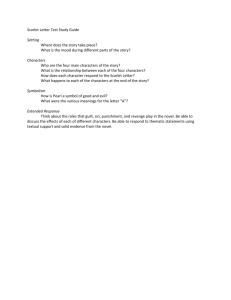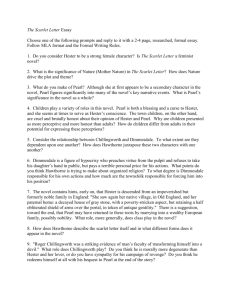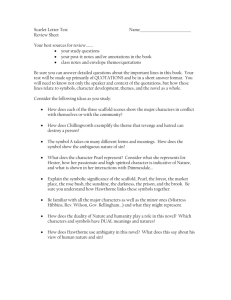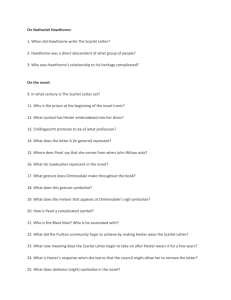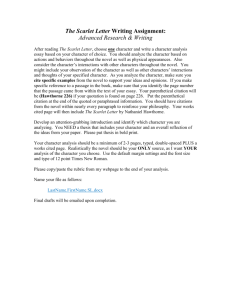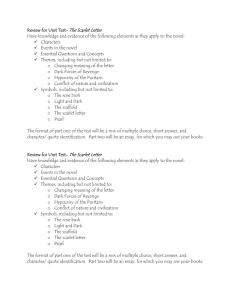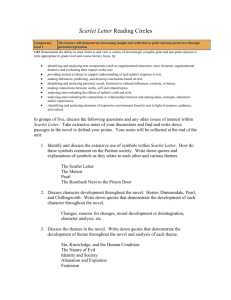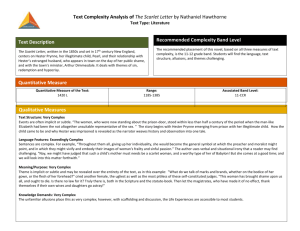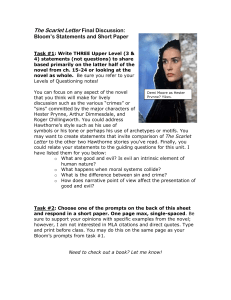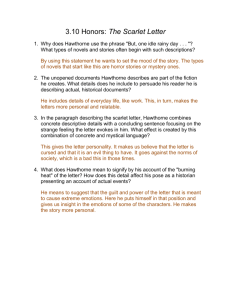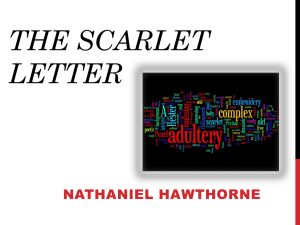The Scarlet Letter Essay Topics
advertisement
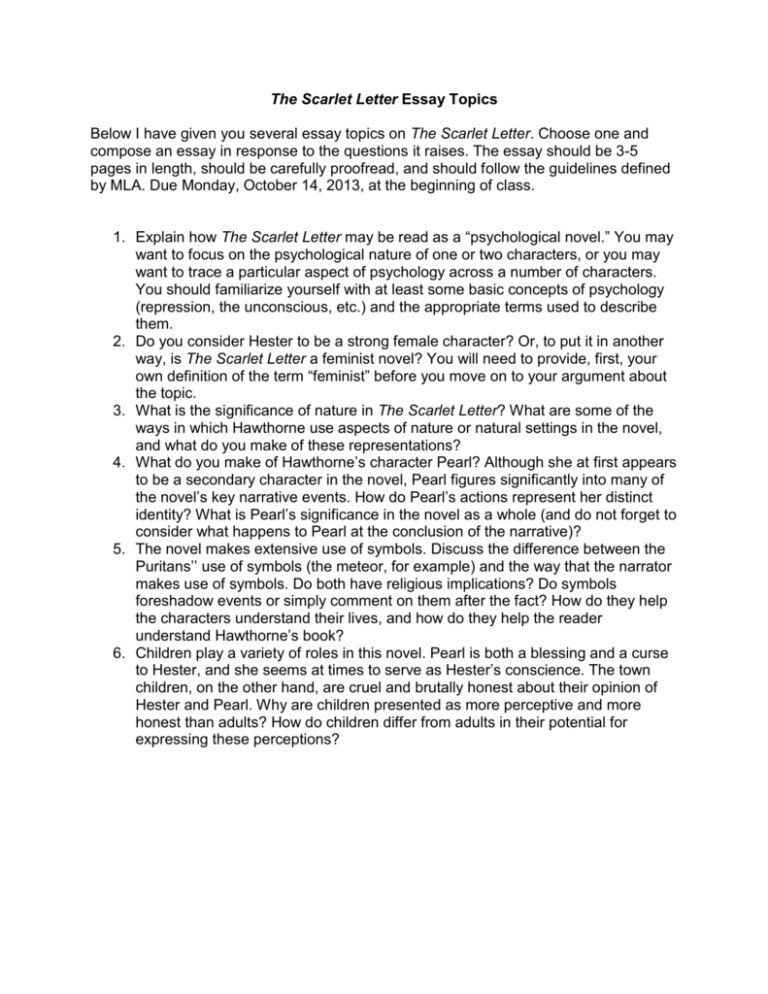
The Scarlet Letter Essay Topics Below I have given you several essay topics on The Scarlet Letter. Choose one and compose an essay in response to the questions it raises. The essay should be 3-5 pages in length, should be carefully proofread, and should follow the guidelines defined by MLA. Due Monday, October 14, 2013, at the beginning of class. 1. Explain how The Scarlet Letter may be read as a “psychological novel.” You may want to focus on the psychological nature of one or two characters, or you may want to trace a particular aspect of psychology across a number of characters. You should familiarize yourself with at least some basic concepts of psychology (repression, the unconscious, etc.) and the appropriate terms used to describe them. 2. Do you consider Hester to be a strong female character? Or, to put it in another way, is The Scarlet Letter a feminist novel? You will need to provide, first, your own definition of the term “feminist” before you move on to your argument about the topic. 3. What is the significance of nature in The Scarlet Letter? What are some of the ways in which Hawthorne use aspects of nature or natural settings in the novel, and what do you make of these representations? 4. What do you make of Hawthorne’s character Pearl? Although she at first appears to be a secondary character in the novel, Pearl figures significantly into many of the novel’s key narrative events. How do Pearl’s actions represent her distinct identity? What is Pearl’s significance in the novel as a whole (and do not forget to consider what happens to Pearl at the conclusion of the narrative)? 5. The novel makes extensive use of symbols. Discuss the difference between the Puritans’’ use of symbols (the meteor, for example) and the way that the narrator makes use of symbols. Do both have religious implications? Do symbols foreshadow events or simply comment on them after the fact? How do they help the characters understand their lives, and how do they help the reader understand Hawthorne’s book? 6. Children play a variety of roles in this novel. Pearl is both a blessing and a curse to Hester, and she seems at times to serve as Hester’s conscience. The town children, on the other hand, are cruel and brutally honest about their opinion of Hester and Pearl. Why are children presented as more perceptive and more honest than adults? How do children differ from adults in their potential for expressing these perceptions?
